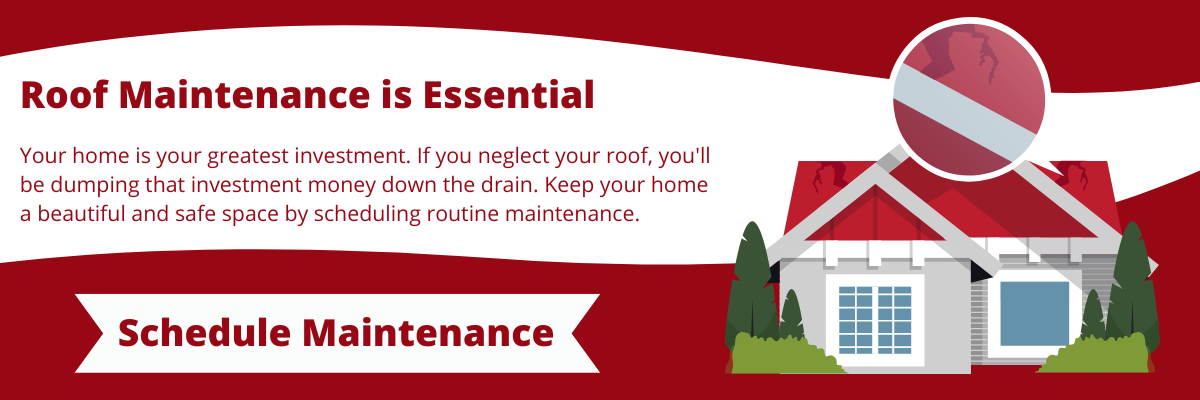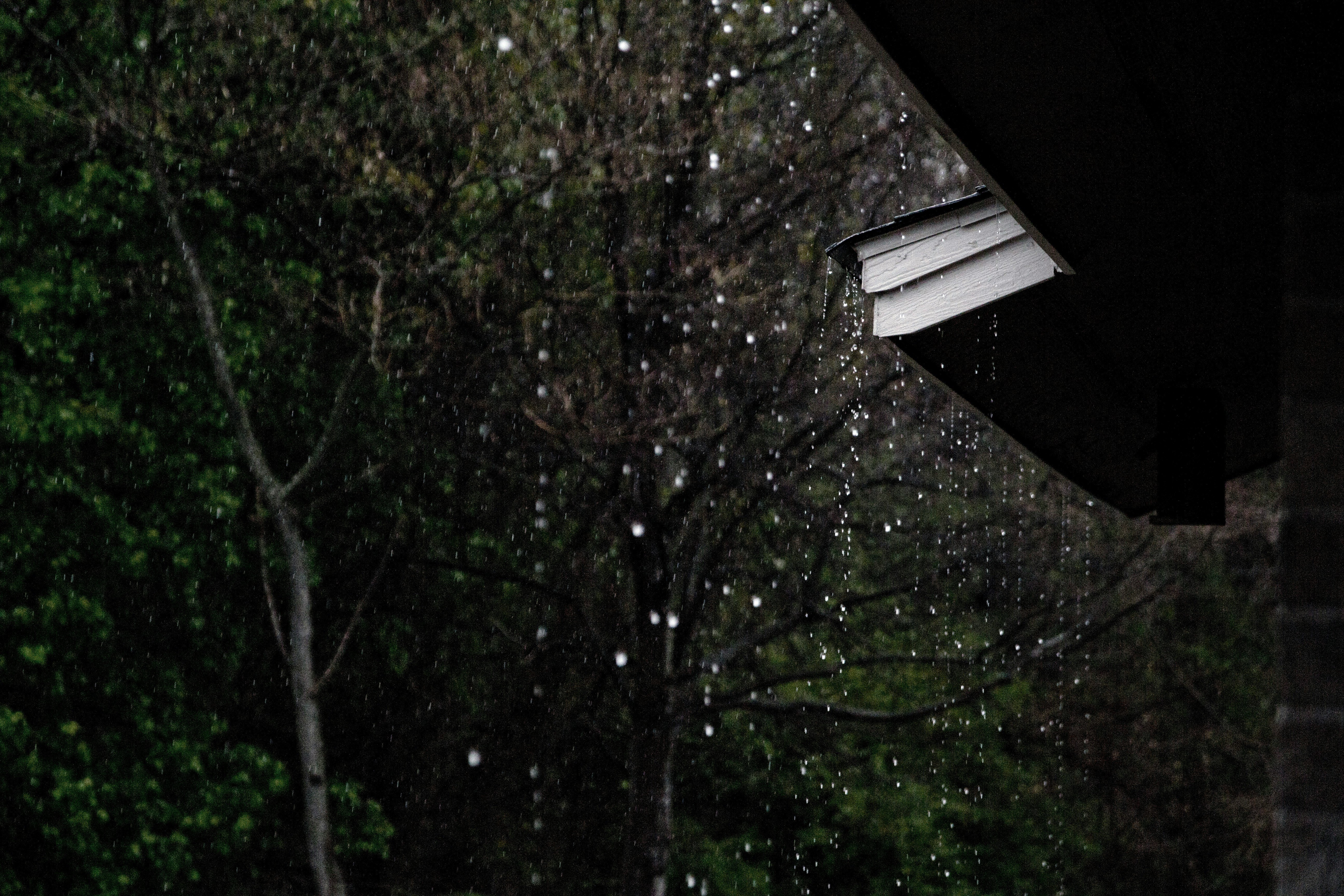
Returning home to a living room flooded by rainwater is a nightmare scenario. After the frantic cleanup and makeshift roof repairs, it's all too easy to push fixing the leak to the back burner, especially when the sun is shining and work keeps you occupied. Sound familiar?
We get it—roof repairs might not be a top priority on sunny days or when it's not actively raining. Budget constraints or the reluctance to invite contractors into your home are valid concerns. RoofCrafters, with almost 30 years of experience, understands these reasons.
However, we also believe in the importance of a secure roof that ensures optimal safety for your family and belongings! If you've been puzzled by why your roof only leaks sporadically, and you're seeking professional guidance, you're in the right place. This article delves into the various factors causing random roof leaks and offers insights on how to address these issues. By the time you finish reading, you'll a few steps closer to pinpointing the cause of yours and how to fix it.
Intermittent Roof Leaks Explained
Inconsistent roof leaks generally occur during severe weather conditions. While your roof might be waterproof, damage or installation errors commonly affect its ability to keep water out from certain roof areas.

These leaks might be visible several days into a heavy storm or confusingly never happen under similar conditions. You should always look out for water entering your home during rain so that you know what's happening. There are a few different instances when you might experience a roof leak. Let's jump right in!
The Impact of Horizontal Rain on Your Roof
During rain and strong winds, you might have experienced rain that flies parallel to the ground. Since asphalt shingles are only designed to repel water falling perpendicularly, horizontal rain or wind-driven rain can seep between the shingles and or make its way behind the roof-to-wall or roof-to-chimney flashing.
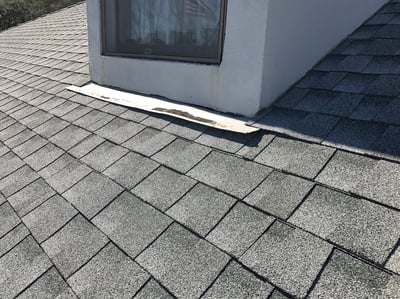
This water will eventually seep through, even far after it has stopped raining. The reason this happens is because the water takes much longer to travel under the roofing material through your attic, then through your insulation, and finally hitting the sheetrock where you are able to see the damage.
The Importance of Maintenance
Unveiling the Impact of Heavy Rain on Roof Leaks
You've likely experienced a roof leak during heavy rain if you haven’t conducted proper maintenance. Leaves and debris build-up in your valleys or around chimneys, skylights or any other penetrations can create water dams, allowing water to back up in heavy rains. If your gutters are clogged and can’t drain the water fast enough, water can also back up on the roof and cause it to leak there, as well.
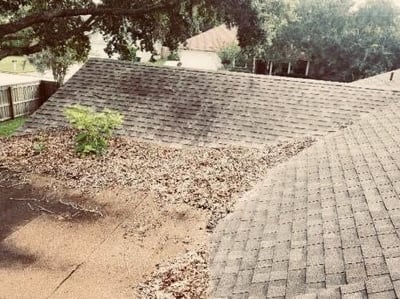
You should consider having your roof inspected by a contractor before the rainy season to clean up any leaves, tree debris, and clogged gutters. At that time, they'll also inspect for any damage that might cause the roof to leak in the near future. That way, you can potentially prevent any roof leaks that may occur.
Ridge Vents & Leaks: Stay Informed
If you have ridge vents, they may leak during torrential rain combined with strong winds. While they are designed to prevent water from entering your house, some vents are less water-resistant than others. Ensure that you research vent types and the waterproofing that suits your needs to prevent any damage to your home.
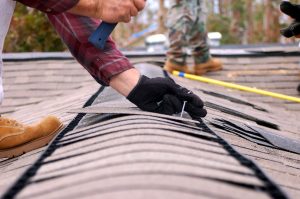
Leaky ridge vents may also indicate improper installation. You should address them right away to prevent any serious damage inside your attic. Proper installation methods are crucial regarding any part of your roof. If anything is done incorrectly, you will pay for it down the road.
Uncovering Common Leak Sources
What are some of the most frequent roof areas that we see leaks in?
Pipe Vents
Homes equipped with pipes that vent through the roof can experience leaks during heavy rain. Pipe vents crack over time depending on the quality of the seal boot installed and its age.
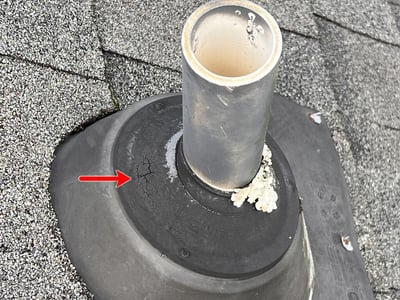
Always ask for premium vent pipes. Cheaper pipe vents dry rot more frequently and can take up more of your time and money in repairs. New products have been developed to prevent the need for frequent pipe boot replacement!
Skylights
Many people dislike skylights because of their high tendency to leak during storms. No matter how tight the seal is, a skylight requires you to cut a hole in the roof. When you need natural light in a room, they work miracles! As you can see, they do come with a cost, however.
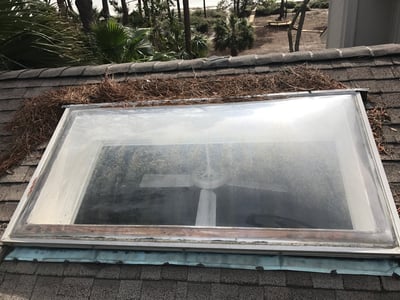
Despite their water-resistant nature, skylights may start leaking after a few years due to natural wear. They can also gather up condensation and start leaking. To prevent this, you should call a professional roofing contractor like RoofCrafters to make sure they are sealed properly.
Chimneys and Caps
One of the most common causes of intermittent roof leaks is pesky chimneys. They are notoriously prone to leaking and should be inspected frequently with the rest of the roof! Chimneys have exposure to natural elements like sun and rain, making them vulnerable.
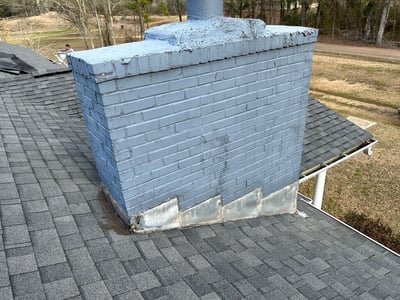
The temperature contrast between the warmth generated by burning wood in the fireplace and the cooler outdoor environment can lead to chimney cracks, potentially resulting in roof leaks. This phenomenon arises due to the constant expansion and contraction of the chimney structure as it cycles between the hot and cold extremes.
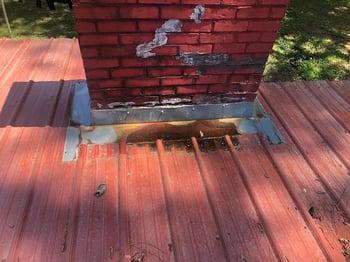
Additional leaks may occur when there's a poorly designed valley that hinders proper water drainage around the chimney. Alternatively, a leak can be caused by the failure of the siding material on the chimney, compromising its integrity and leading to water seepage.
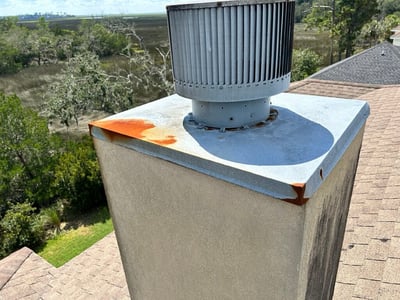
Worn-out or rusted-out chimney caps and roof flashing are also common causes of chimney leaks. Because the chimney caps are out of sight, we forget they need service, too. They should be addressed by your roofer immediately if they are rusted or have broken seals!
A Storm is Brewing
Some roofing materials can withstand greater impact than others. A possible cause of intermittent roof leaks is that your roof might be damaged due to hail, wind, or heavy objects falling on it. Storms do a number on your home and your roof is the most exposed part of it.
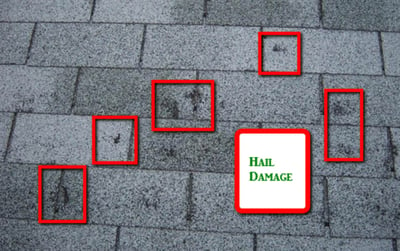
Another cause of leaks is an accumulation of debris. Even walking on your roof can be detrimental if it isn’t designed for it. If you suspect that your roof is leaking due to damage, get in contact with a reputable roofing company to conduct an inspection as soon as possible.
Time's Toll: How Roof Age Leads to Leaks
Over the years, your roof is constantly exposed to weather conditions which causes it to wear out faster. Although some roofing materials can last over a century with proper maintenance, most materials last about 20 years or less.
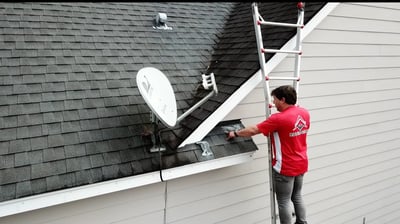
A good rule to follow is to have roof maintenance at least once a year so that you know the exact condition of your roof and have time to plan before it starts developing serious problems. A little preventive maintenance can save a lot of interior repairs from leaks!
Address Your Roof's Intermittent Leaks
Now's the ideal moment to address that leaky roof—let's rip that bandaid off! Once you've confirmed the roof leak, it's time to connect with a local roofing contractor. Even if you can't pinpoint the exact source, a skilled roofer can. They'll tackle the issue before it evolves into more significant damage to your home and belongings.
We understand that various reasons might have delayed your roof repair. At RoofCrafters, we resonate with your concerns. Home improvement projects can be overwhelming, and seeking assistance isn't always easy. When you're ready to take that leap, know that we've got your back. You're just a step away from putting an end to that pesky leak—click the button below to schedule your inspection.
If you're still feeling a bit hesitant and want to delve deeper into roof leaks and repairs, explore the extensive resources in our learning center. We recommend starting with "The 5 Most Common Causes of Roof Leaks" to gain insights into why your roof might be leaking.
My name is David Toth and I am the lead estimator in North Florida with RoofCrafters Roofing. Originally from New Brunswick, I have called Florida home for the past 47 years. I enjoy cooking along with traveling to different historical areas in Florida when I have free time.



